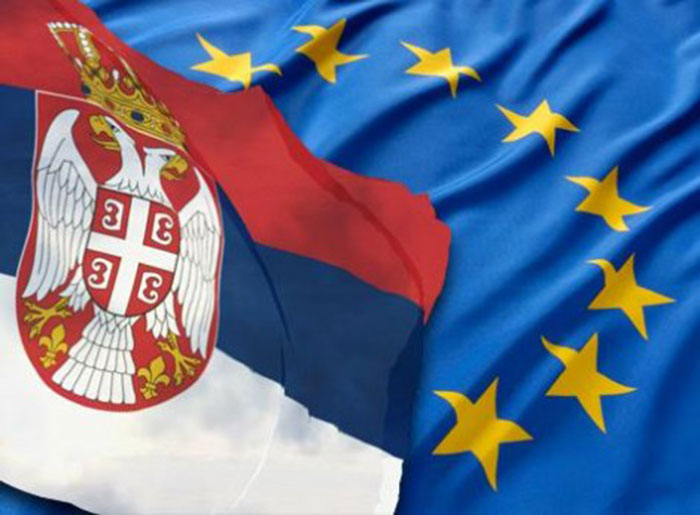

Serbia is portrayed as a deeply polarised country that fails to conduct fully fair and free elections, with a parliamentary majority that excludes a large part of its citizens and does not represent the reality of existing political pluralism. In other words, its legitimacy is under a question mark. The EC is calling for transparent and inclusive social dialogue on electoral conditions and respect for the ODIHR/OSCE recommendations that so far have gone unaddressed by the ruling coalition. Stopping short of calling it a captured state, the Report describes a serious lack of progress in judicial reform, the de-politisation of public administration, and the freedom of expression, while the oversight of the Parliament over the executive is described as barely formalistic. Corruption remains a cause of concern.
The Report recognises the misbalance between Serbia’s supposed strategic goal of orientation towards EU integration and messages coming from high-ranking state officials. It is a sign that the EU is not going to sit idle and watch how its rivals are being indiscriminately praised while in reality the EU is the one providing the greatest support. This is a taste of what will be required from the Serbian leadership in the future, bearing in mind that the new methodology for accession negotiations will require more political commitment from its leaders, expecting them to be objective and to explain to citizens why EU accession is important for the country.
With regard to economic criteria, while macro-economic data is generally positive, concerns remained regarding structural issues such as the strong role of the state in the economy, the influence of the lack of the rule of law on the private sector, restructuring of state-owned enterprises and public administration reform.
Regarding its ability to assume the obligations of membership, when compared with last year’s Report Serbia failed to achieve any progress in 17 negotiation chapters, slipped back in 9 and achieved some progress in 7 of 33 negotiation chapters. Traditionally, the EC has emphasised Serbia’s insufficient gradual harmonisation with the EU’s Common Foreign and Security Policy restrictive measures and sanctions.
On the last two occasions when Country Reports were presented, Serbia’s leaders expressed an awkward display of cynical amusement, disbelief and immature offensiveness. The fact was they failed to understand what the purpose of these reports was, or perhaps didn’t want to understand. This Report should be carefully read and analysed by the incoming Government and considered as a road map of issues that Serbia needs to address if it seriously and unambiguously wants to reset and proceed with its EU integration path. The future dynamic of Serbia' accession talks will depend on its ability to implement rule of law reforms and readiness to find the way to normalization with Kosovo. If it fails, Serbia is facing the risk of becoming subject to paragraph 22 of the EU’s Negotiation Framework, which might lead to the suspension of accession negotiations due to the persistent inability to respect the values and principles on which EU is founded.